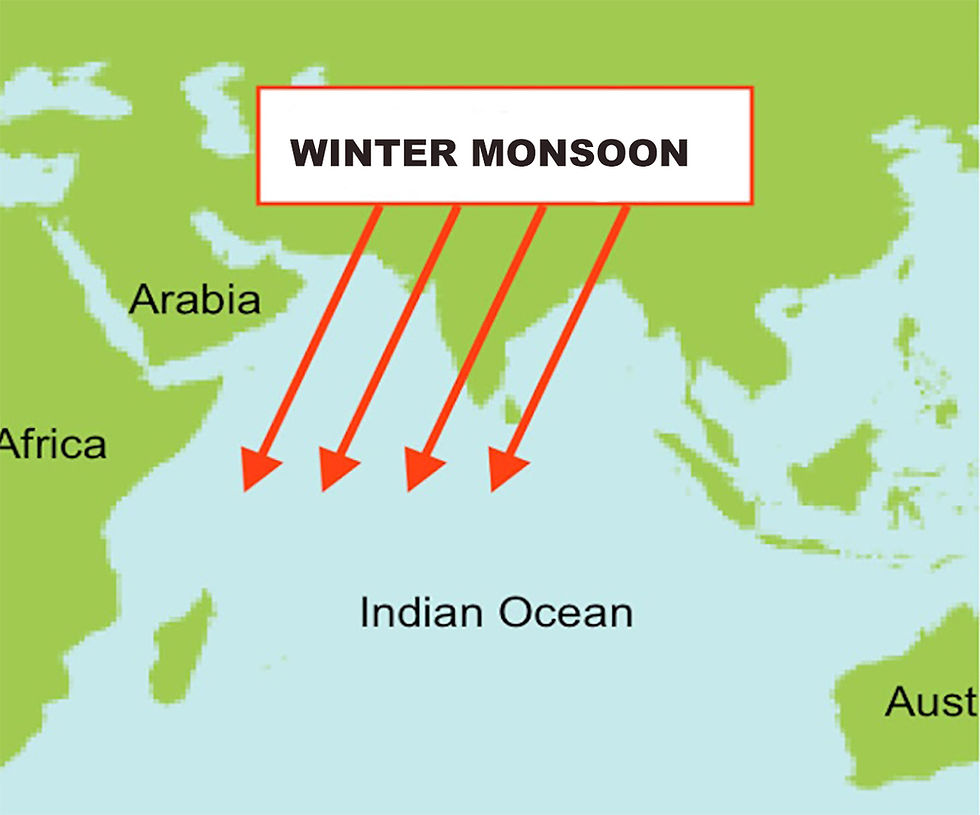Overview of the History of Meteorology
- Alfon Olorvida

- Aug 22, 2021
- 2 min read

The weather has played an important role in seafaring since mankind first began crossing oceans in boats. As a result, sailors developed an understanding of the weather's ever-changing character and the climate's underlying elements, such as prevailing winds and ocean currents.


In the 16th century, ancient sailors navigating the Indian Ocean were able to identify the winter monsoon wind patterns by smelling the intense fragrance of the Boswellia gum plants along the southern Arabian coastal strip. During winter, the dry northerly wind blows the scent of the intensely fragrant gum trees, which gives ideas to the sailor of the winter monsoon wind pattern and was able to make the necessary preparation.

In severe situations, the climate might shift to the point where these connections are broken. However, sailors learned the abilities needed to deal with the weather nearly everywhere, albeit at great danger to themselves, their goods, and their vessel. The most successful shipmasters of the 'clipper period' were weather specialists by the mid-nineteenth century. Their ability to employ meteorological and ocean current expertise to find the quickest route halfway around the world with the least amount of danger and the highest profit margins demonstrates their remarkable talent.

The arrival of steamships altered everything. Because progress was increasingly dependent on the vessel's performance, weather information became less important, and seamen adopted a more resigned attitude. Indeed, there was a perception that technological advancement rendered weather less relevant, and tragedies such as the loss of the 'Titanic' in April 1912 cast doubt on this notion. Simultaneously, the development of radio communications changed people's perceptions of the weather. Despite the fact that the 'Titanic' was equipped with a radio and received information from other ships about the severe ice conditions south of Newfoundland during its fatal voyage, it was the introduction of radio bulletins for shipping after World War I that truly began to redress the balance.



Comments